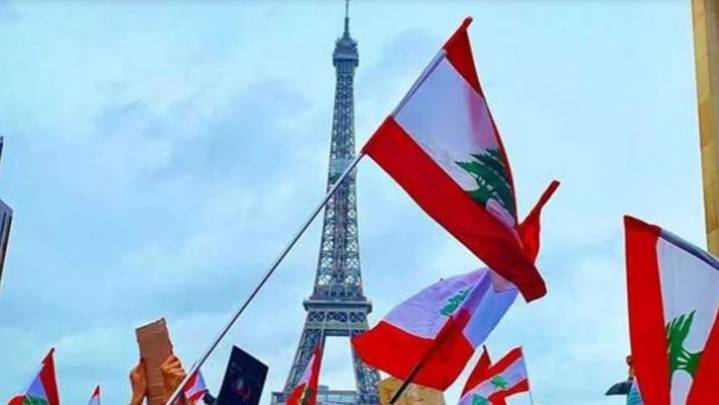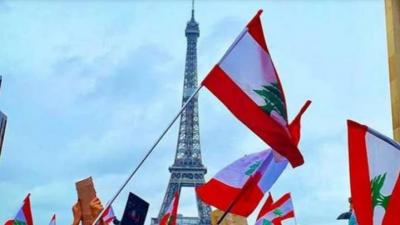As the political movement initiated by Progressive Socialist Party leader Walid Jumblatt seeks to break the deadly stalemate in the presidential file locally, the French initiative regarding a scheduled international regional meeting on Lebanon adds a potential hope for completing internal efforts alongside external positions to create an environment conducive to electing a president.
The French Foreign Ministry announced that Paris would host a meeting next Monday dedicated to Lebanon, involving representatives from France, the United States, Saudi Arabia, Qatar, and Egypt, in a bid to encourage Lebanese politicians to find a way out of the crisis afflicting their country. This announcement coincided with Foreign Minister Catherine Colonna's visit to Saudi Arabia, where she expressed deep concern about the political deadlock in Lebanon, following a meeting between Qatari and Iranian officials that likely touched upon the Lebanese issue.
While the world encourages and urges officials to resolve the crisis, a Lebanese parliamentary delegation in Washington was informed by officials at the World Bank about the suspension of a loan for electricity importation from Jordan and gas from Egypt due to unmet conditions for reforming Lebanon's electricity sector, notably the establishment of a regulatory authority, halting waste, and improving collection. This brings to light Jumblatt's warning several months ago about the "booby-trapped electricity pit."
Meanwhile, French envoy Pierre Doukan is set to travel to Washington in the coming days to meet with officials at the World Bank and the U.S. Treasury to discuss financing for gas and electricity importation from Egypt and Jordan for Lebanon. Doukan continued his meetings in Beirut yesterday, where he met with caretaker Prime Minister Najib Mikati and Minister of Energy Walid Fayad.
On another front, Saudi Ambassador Walid Bukhari's visit to Army Commander General Joseph Aoun is of significant timing, as Aoun is among the names proposed for the presidency, a name Jumblatt has also mentioned alongside others.
In light of the skyrocketing U.S. dollar, the Bank of Lebanon has taken a new measure to raise the exchange rate on its Sayrafa platform from 38,000 pounds to 42,000 pounds per dollar, while public employees receive their salaries, without allowing citizens who participated in financial speculations via Sayrafa, according to Circular 161 issued by the central bank, to withdraw their funds at the 38,000 pounds rate, resulting in significant losses.
In the education sector, which the Progressive Socialist Party is pressuring to find a quick solution to preserve the academic year and the rights of teachers, government sources highlighted an education meeting held yesterday at the Grand Serail with the attendance of Prime Minister Mikati, Minister of Education Abbas Halabi, former Minister of Education Bahia Hariri, and the Director General of the Ministry of Finance to discuss approving financial aid for educational institutions in public schools and the Lebanese University.
Sources indicated in a call with "Anbaa" electronic that a third session for the Council of Ministers is not far off, with Mikati likely to call for it next week or the following week at the latest, as it has become urgent to hold a session to discuss the education file, which can no longer be postponed. It was noted that Mikati wants to prepare the political atmosphere before the session and avoid problems.
Additionally, following the fracturing relationship between Hezbollah and the Free Patriotic Movement, a Hezbollah delegation visited former President Michel Aoun at his home in Rabieh in an attempt to mend the rift, coinciding with the 17th anniversary of the Mar Mikhael agreement between the Free Patriotic Movement and Hezbollah, and the notable meeting between Hezbollah leader Hassan Nasrallah and Aoun at Mar Mikhael Church.
According to former MP Chamil Roukoz, this visit aims to remind of the events that took place on February 6, 2006, and to revitalize this agreement in order to mend the rift following the significant estrangement between the Free Patriotic Movement and Hezbollah in recent times. However, Roukoz noted that "the distance between the two parties has become very far," describing such visits as "fruitless due to the party's insistence on nominating former Minister Sleiman Frangieh."
Concerning the way out of the crisis, Roukoz pointed out that "resolving the crisis and electing a president is not solely a Lebanese affair," suggesting the possibility of convergence on the name of Sleiman Frangieh due to his close ties with most Arab countries. He believes that "Frangieh can garner support from most parliamentary blocs, except for the Strong Lebanon Bloc, which will not vote for him," adding that the Strong Republic Bloc, if they do not vote for Frangieh, "at least will ensure the quorum."
At the same time, Roukoz stated that "the army commander is not far from these intersections and has advanced chances, but his nomination requires amending the constitution and securing a quorum of 86 MPs to approve it, which can only occur through a law proposal raised by the government to the parliament, and after amending and voting on it, it will be returned to the government, which requires time." He asserted that "any president will not succeed if their election is not accompanied by Arab-Gulf acceptance, as the economic situation is worsening and reliance solely on the International Monetary Fund is insufficient without simultaneous Arab financial support."
Amid all this, the true significance remains in convincing all local forces of the necessity of resorting to dialogue, as this is the only available path to elect a new president.




